Something has been bothering me about the Kim-Trump summit. The Kim Jong-un offer to denuclearize, agreement to refrain from additional nuclear and missile tests, and eagerness to meet with the U.S. president might never have happened.
What is nagging at me is that these alleged promises or concessions from Kim Jong-un seem so out of character for North Korea’s 34-year-old leader. Since he came to power, Kim has been fast-forwarding the nuclear weapons program, eschewing diplomacy, and mocking the leaders of the United States, South Korea, Japan, and China. Kim has taken full ownership of the North’s nuclear weapons program, enshrined it in its constitution, and for more than six years has explicitly stated that it was not a bargaining chip.
There has been very good analysis about why Trump should not have accepted, whether Kim Jong-un is being sincere, the risks and opportunities of a Kim-Trump meeting, and how the United States should prepare Mr. Trump. But we’ve already built an analytic infrastructure and policymakers are furiously trying to plan next steps based on a possibly incomplete or false rendering of what happened in Pyongyang.
In fact, Mike Pompeo, the outgoing director of the Central Intelligence Agency, essentially presented Kim’s “offer” as fact, in his recent statement that was remarkably devoid of any probabilistic language or any potential alternative scenarios or drivers for Kim’s outreach. He has also cast these promises attributed to Kim as evidence that the maximum pressure campaign is working.
Furthermore, because the U.S. president has so publicly agreed to meet the North Korean leader, what may or may not have happened has morphed into reality.
North Korea has yet to confirm or deny the South Korean account of the meeting, keeping mum probably as a way to maintain maximum flexibility on its next moves, as it monitors the political theater playing out in Washington, Seoul, and Tokyo. North Korea’s leaders, like the rest of us, may also have been surprised by Mr. Trump’s embrace of a summit meeting and they too may be scrambling to craft a strategy to exploit the opportunity that fell into their laps.
I fully admit that I could be wrong and that the Blue House readout of their envoys’ meetings with Kim Jong-un is exactly what came out of Kim’s mouth. If so, then kudos to them for at least making Kim pay lip service to denuclearization, which he had so far refused to do. But I have to wonder, what did the South Korean envoys say that elicited those comments from Kim? The content and context of Kim’s “offers” remains unclear.
Let’s remember, though, that it is in South Korea’s interest to put the best spin on whatever happened in Pyongyang, given Seoul’s fears about the ongoing drumbeat from the White House about using military strikes against North Korea and President Moon Jae-in’s desire to be in the “driver’s seat” on Korean Peninsula affairs. The Moon administration also has a domestic reason to play up the results of the meeting in Pyongyang, having weathered criticism from opposition parties about Moon “appeasing” North Korea. And it’s possible that they took whatever nuggets they extracted from Kim, spit-shined and polished them, and presented Kim’s “offers” on a velvet pillow—along with a good dose of flattery (“Your maximum pressure campaign is working, Mr. Trump!”)—to try to get the United States on the engagement track.
Even if Kim made these statements, these are not “concessions” or evidence that North Korea sees the error of its ways and that it is now approaching the U.S. on bended knee, begging for forgiveness. As my colleague Evans Revere pointed out, North Korea’s definition of denuclearization bears no resemblance to U.S. definition of denuclearization, and that it is heavily—and unrealistically—conditional, based on the end of U.S. “hostile” policy, including the removal of U.S. forces from the Korean Peninsula. Kim is most likely taking some guidance from his father’s playbook of coercive diplomacy—conducting provocations or manufacturing a crisis then offering talks to ease tension and to try extracting political and economic concessions.
Yet President Trump and others in his administration seem confident that in a potential summit with Kim, the United States will be in a position of strength and that the president, with his deal-making skills and charisma, will be able to achieve North Korean denuclearization, an elusive goal for the presidents who came before him. I suspect that Kim also will approach a possible summit thinking that he is in the driver’s seat. And when these two leaders come together, armed with false assumptions about the other side’s intentions, and combined with their respective desire for quick results, reluctance to back down when confronted, and personal ownership of the issue, we could very well face a combustible situation that would be difficult to fix.
As the administration prepares for a possible Trump-Kim meeting, U.S. officials should, at a minimum, take a close look at what factors are driving Kim’s current outreach and Seoul’s motivations for encouraging U.S.-North Korea dialogue, coordinate and consult with South Korea and Japan, and lower expectations that one meeting between Kim and Trump could “solve” a decades-long conflict.
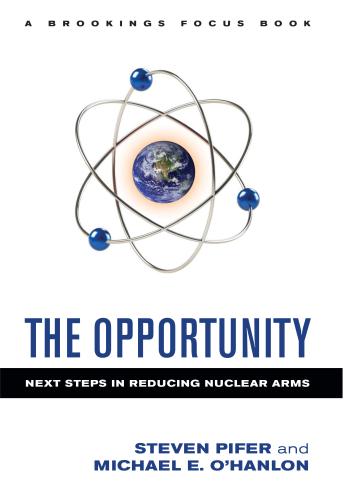
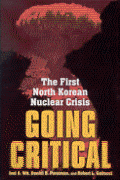
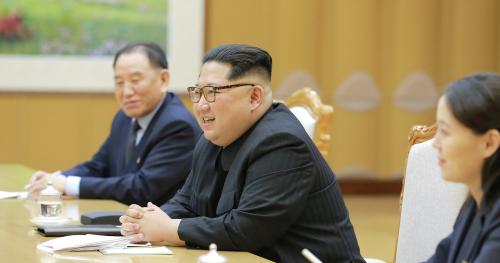
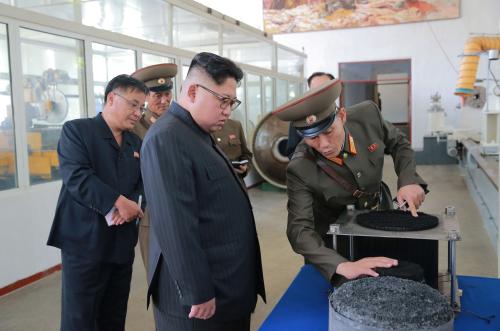
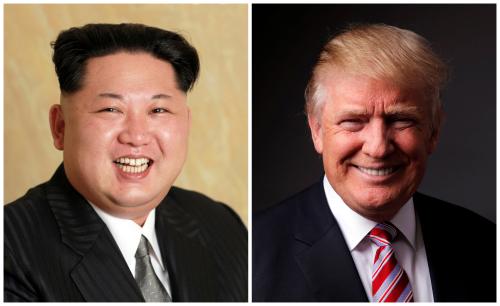



Commentary
Something’s not right about the Kim-Trump summit. And it’s not what you think.
March 14, 2018